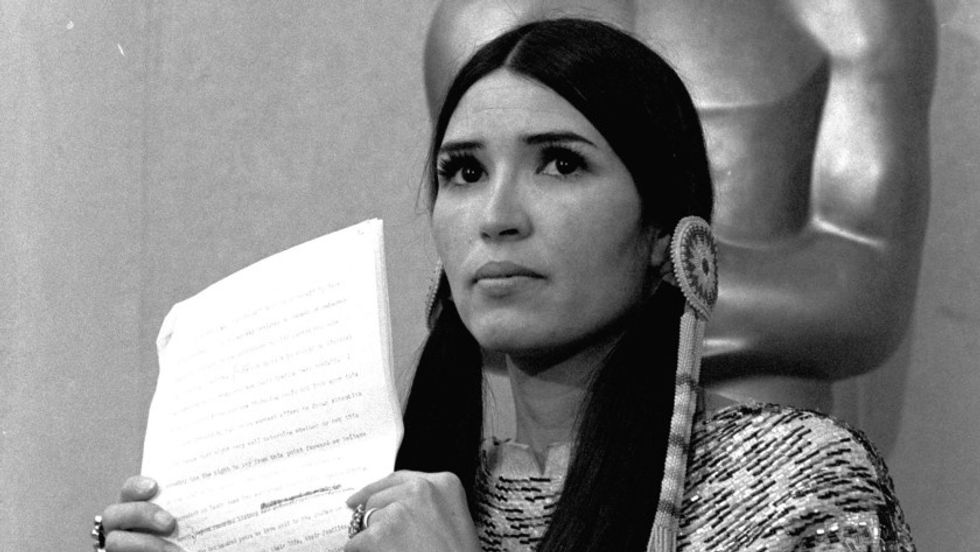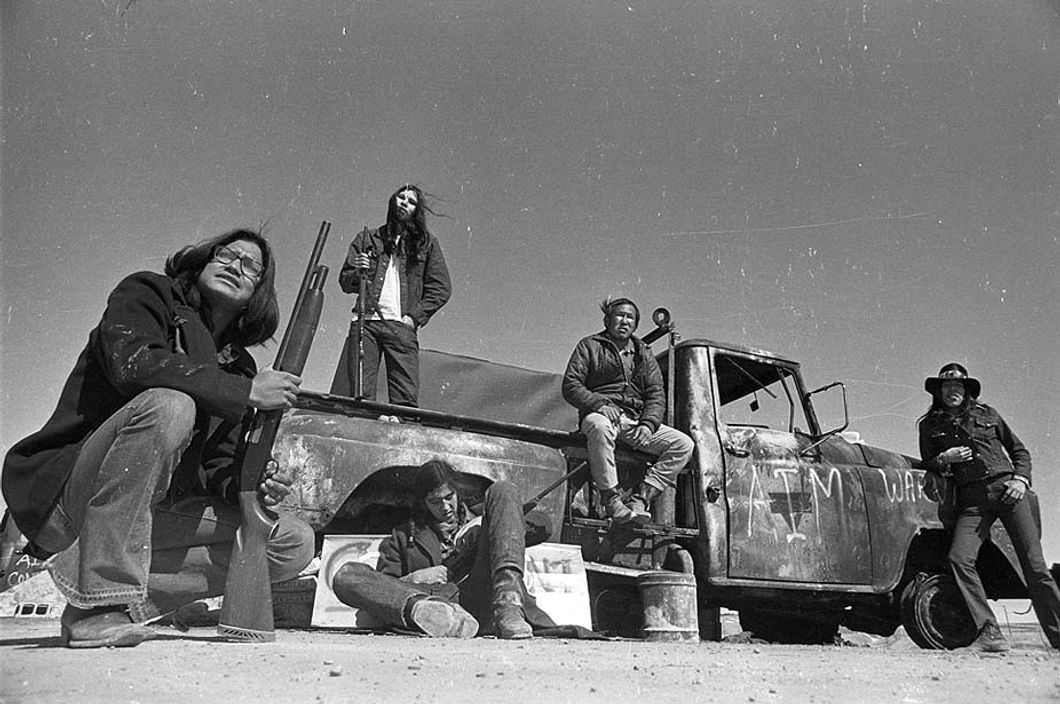Picture it: you're watching the Oscars live in March of 1973 when it's time for the hosts to announce the winner of the best actor. You hear the words, "Marlon Brando, in 'The Godfather,'" as a young Native American woman in traditional garb stands from her seat and approaches the stage. The hosts reach the award to her, but she puts her hand up in refusal. Confusion washes over the audience. She says, "Hello, my name is Sacheen Littlefeather. I'm Apache, and I'm president of the National Native American Affirmative Image Committee. I'm representing Marlon Brando this evening, and he has asked me to tell you […] that he very regretfully cannot accept this very generous award."

Holy cow. An Oscar. One of the most iconic movie stars in history just denied what is possibly the most prestigious honor that any actor could dream of being awarded. What in the world is he doing?
Sacheen continues, "And the reasons for this being the treatment of American Indians today by the film industry." She was met with boos from much of the crowd, then some applause from others. "And on television and in movie reruns," she says, "and also with recent happenings at Wounded Knee."
A big Hollywood name in an iconic film that gained fame globally – Brando knew what he wanted to do with the attention, and he decided to use it to call out Hollywood on their negative portrayal of Native Americans in the film industry and the mistreatment of Native American actors and actresses in Hollywood, and to bring attention to a civil rights movement that was happening right underneath our noses.
When asked later on 'The Dave Cavett Show' if he had the chance to do it all over, would he do it differently, Brando said no, that he felt like the Native American population has never in American history had their voices heard, and he felt it was right for them to have the chance to do it in front of 85 million viewers.
Marlon Brando on Rejecting His Oscar for 'The Godfather' | The Dick Cavett Showwww.youtube.com
The Standoff at Wounded Knee had begun only a month before and was an attempt by Oglala Lakota tribe members and followers of the American Indian Movement(AIM) to call attention to the US's poor efforts to draft fair treaties with tribes, as well as a means of trying to further convince the Oglala Sioux Civil Rights Organization(OSCRO) to impeach corrupt tribal president Dick Wilson.
On February 27, 1973, 200 tribe members and activists took the residents of Wounded Knee, South Dakota hostage, seizing the town and demanding that the US government follow through on the treaties they had made with Native American tribes during the 18- and 1900s. In a matter of hours, police had surrounded the town, not allowing anyone in or out.
Long story short, the siege lasted for a total of 71 days. Two Sioux tribe members were killed and hundreds more arrested. And it would seem that that was the end of this civil rights movement. Little-to-no improvements were made on the part of the American government, and the reservation that is the home to the tribe that participated sits in one of the poorest counties in the nation.
So why do I bring up this short-lived movement? What relevance does this hold to today? It's simple, really: I don't want Black Lives Matter to go down the same path. The movement came to an end, and nothing changed. We still regard the poor treatment that American Indians receive to this very day, and this happened nearly 50 years ago.
I want BLM to remain relevant as long as it takes for the changes we need to take place to come to fruition. I want everyone to talk about it, lobby for it, make their voices heard. I want it to stay on our minds and in our hearts after it stops trending. And most of all, I want it to go down in history as the movement that changed history.











